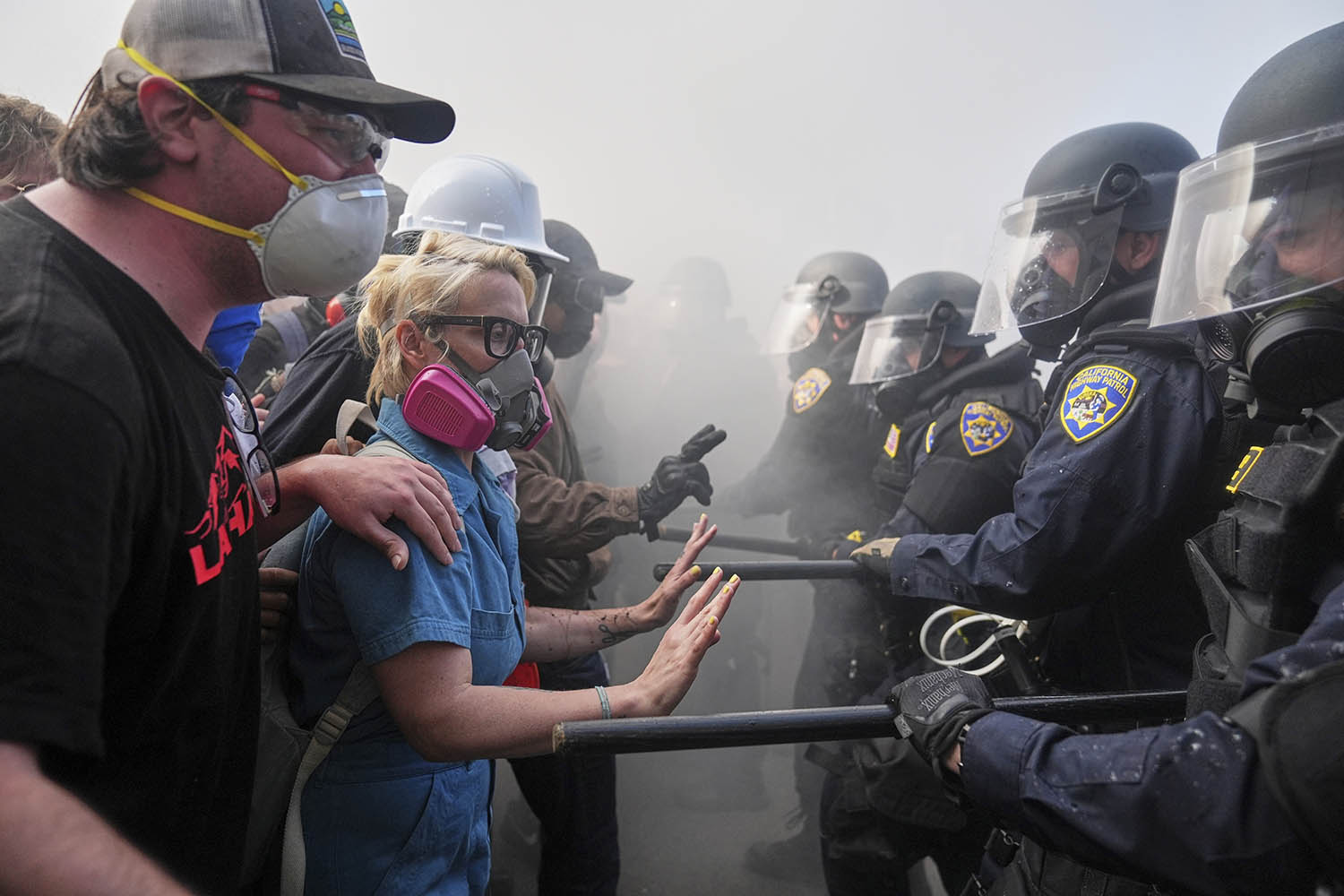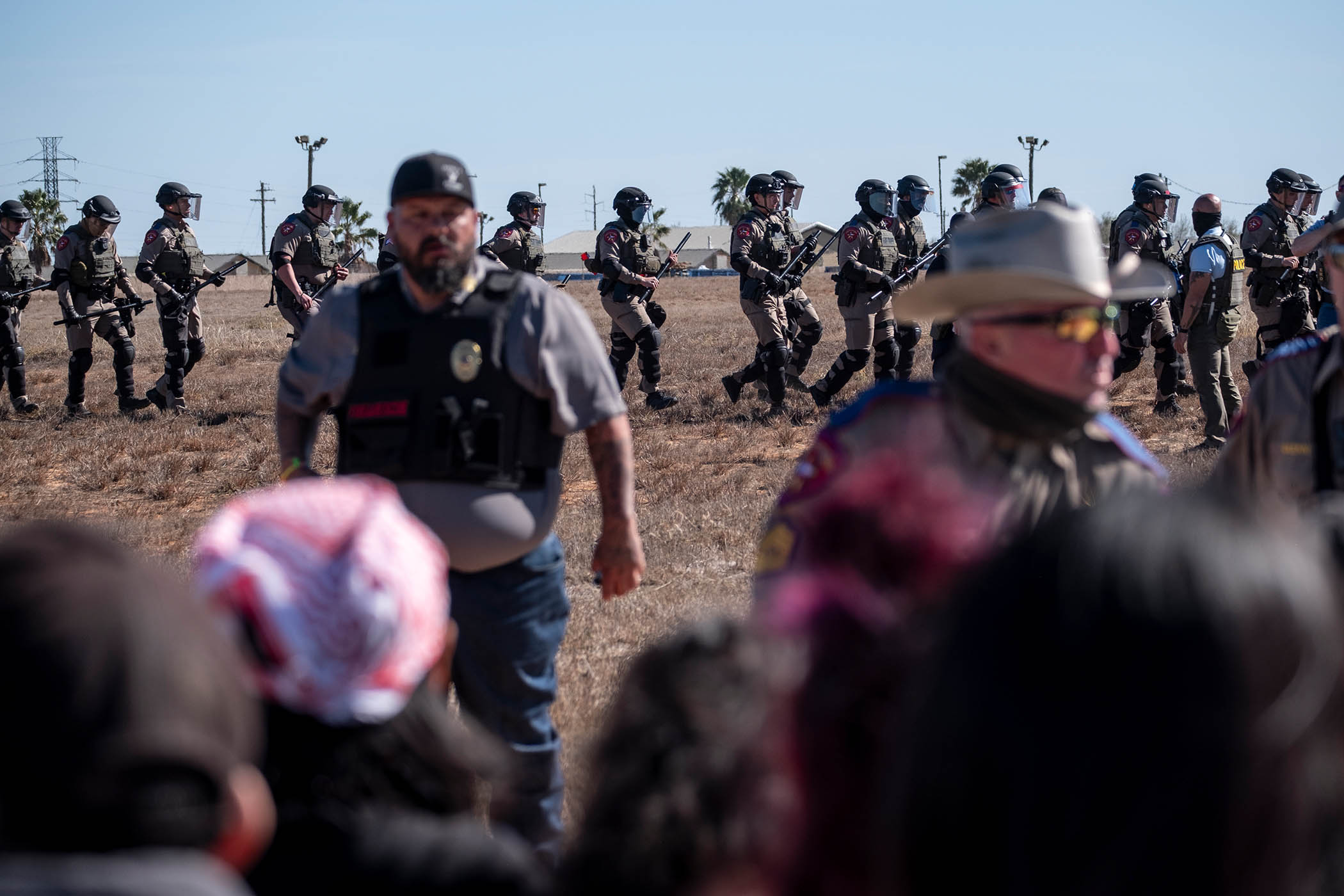It began with an early morning text message, circulated among immigrant workers as Donald Trump’s immigration enforcement teams conducted sweeps in and around Los Angeles last weekend.
Federal agents had been spotted at a hotel 10 minutes north of downtown, the message said. Someone posted the warning to social media – expecting, perhaps, that it would encourage people to hunker down. Instead, the opposite happened.
Protesters gathered outside the AC hotel in Pasadena with placards telling ICE, the Immigration and Customs Enforcement agency, to get out of town. Soon a band was playing, the local mayor and officials gave speeches, and church leaders arrived to swell the growing ranks of ordinary citizens standing up for their immigrant brothers and sisters.
“We’re talking white Americans, African Americans. Soccer moms!” said Pablo Alvarado, who leads an organisation that campaigns for day labourers. “People coming out because they don’t like what they see.”
At first, hotel managers would not confirm to Alvarado that ICE agents were staying there. But many of the staff were strangely absent, and it wasn’t hard to guess that they were terrified of showing up.
While thousands of other anti-Trump protesters thronged outside federal buildings, grabbing all the headlines because police with riot shields were firing foam-rubber bullets, and a few demonstrators were setting light to cars and throwing rocks, the Pasadena protest continued peacefully, even joyfully, until the hotel told the ICE agents they needed somewhere else to stay.
“We were there to guarantee there was no violence,” Alvarado said. “If it gets violent, it only impacts the most vulnerable.”
The ICE agents had to repair their vehicles first, because someone disregarding the no-violence rule had slashed the tyres and a repairman refused to help. When they pulled out of the hotel car park, protesters jeered in celebration behind them.
Related articles:
It was an early indication that resistance to the Trump administration has roared to life, first in Los Angeles, then across the US.
Not only are many Angelenos outraged that the president is sending masked federal agents to snatch immigrant workers and tear mothers away from their children. They also see that he’s willing to send the national guard and marines to enforce his will and, as they see it, crush anyone who offers a dissenting view.
Newsletters
Choose the newsletters you want to receive
View more
For information about how The Observer protects your data, read our Privacy Policy
California’s governor, Gavin Newsom, who has rediscovered his talent for both goading the president and stepping up as his most trenchant political critic, called it a “perilous moment”.
After months of enduring complaints about California’s high cost of living and the threat of deep budget cuts, Newsom has been calling out Trump’s most obvious lies about LA burning to the ground (violence and vandalism have been restricted to a few blocks) and vowing to withdraw the California national guard the second the courts agree that deploying them without his consent was illegal.
And he is far from the only one denouncing a “brazen abuse of power” by the White House. “Trump is looking for any excuse to ramp things up and seal the deal on becoming a dictator, essentially,” said Jason Stanley, a Yale philosophy professor and author of bestselling books on fascism and propaganda. “There needs to be a mass movement now. Things are moving very quickly.”
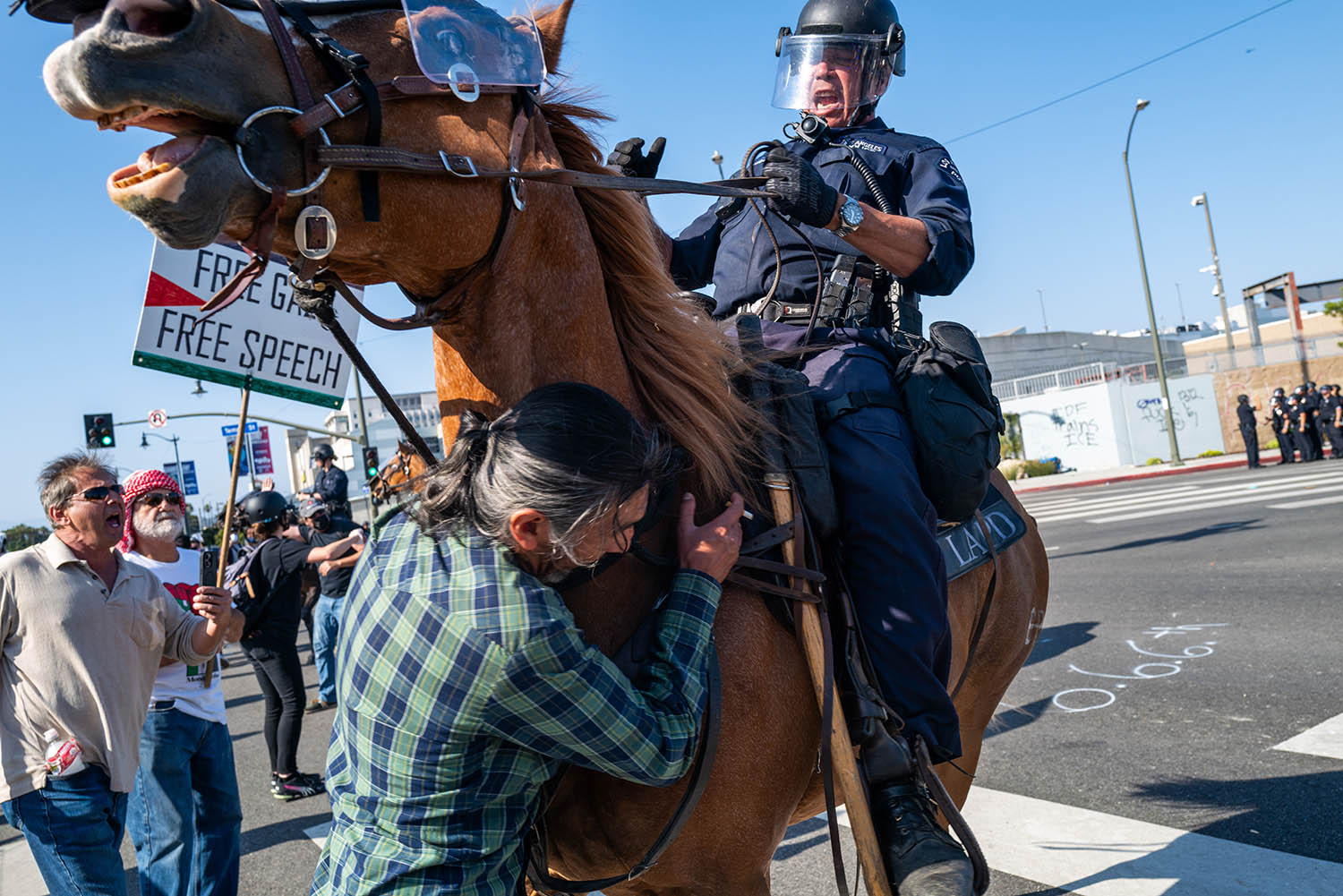
LAPD officers on horseback clash with protesters during protests after a series of immigration raids on 8 June in Los Angeles
That mass movement shows every sign of having arrived. At the first big protest in downtown Los Angeles last Sunday, after Trump’s decision to send in the national guard, police and protesters appeared surprised by the numbers who took to the streets.
Since then, as Trump has sent more military personnel to southern California, the protests have continued, culminating in yesterday’s “No Kings” anti-Trump rallies in 1,800 locations from coast to coast. While California’s elected leaders have not stopped demanding the withdrawal of the national guard and marines, they have also worked to ensure that their role is limited and coordinated with local law enforcement to avoid further inflaming a volatile situation.
“In Los Angeles, we feel we have established a marker for resistance,” said Alan Minsky, executive director of the Progressive Democrats of America, which until now has criticised mainstream Democrats including Newsom for failing to confront Trump’s excesses head-on. “Initially, the feeling was, oh hell, the Gestapo is in town. But we’ve heard nothing from the people of this city except solidarity… The sense is that fascists have attempted to occupy our metropolitan area, and we are unified in our opposition against them.”
Trump and his allies have hardly backed down. Having started the week raiding a clothing factory and branches of hardware chain Home Depot, the construction materials chain where day labourers habitually wait to pick up building jobs, they ended it grabbing nannies in parks and herding young children in their care to police stations for shocked parents to collect them.
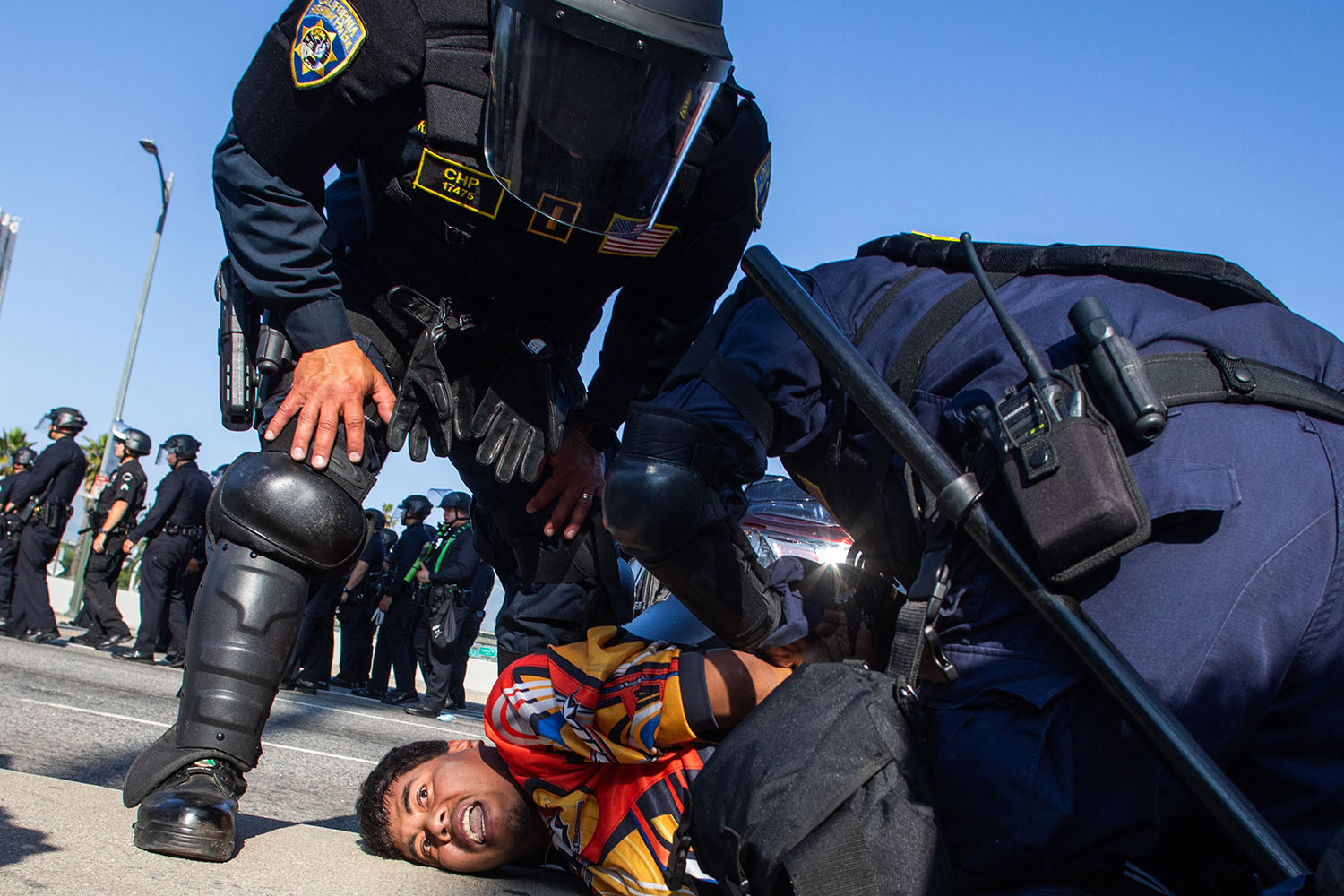
California Highway Patrol officers arrest a demonstrator in the overpass of the 101 motorway on 10 June
The justice department indicted a prominent labour leader in Los Angeles and a congresswoman in New Jersey, both of whom had been present at ICE raids and voiced their opposition – usually not regarded as a crime in the land of the free. Last Thursday, FBI agents dragged California senator Alex Padilla out of an LA news conference held by Kristi Noem, Trump’s head of homeland security, and handcuffed him, allegedly because he had lunged at Noem even though video footage showed no such thing.
“If this is how the department of homeland security responds to a senator with a question,” Padilla told reporters after his release, “you can only imagine what they’re doing to farm workers, to cooks, to day labourers out in the Los Angeles community and throughout California and throughout the country.”
Stanley, at Yale, said the administration’s strategy appeared to be to try to numb public opinion as one outrage followed another. “You’re conditioning citizens to look away,” he said, “and once they look away they can be conditioned to do absolutely anything.”
Yet events appeared to achieve the exact opposite. Alvarado put out a statement last week expressing something close to despair about the US establishment’s hostility towards immigrants. “The courts have failed us,” he wrote. “Politicians have failed us. The media have failed us. It appears everyone has abandoned immigrants. We are a community under siege. All we have now is the streets.”
By the end of the week, though, the community felt significantly larger. “Images of violence perpetrated by federal agents are overwhelming to people,” he said, “and they have been a catalyst to action. I am grateful and proud that immigrants are not alone.”
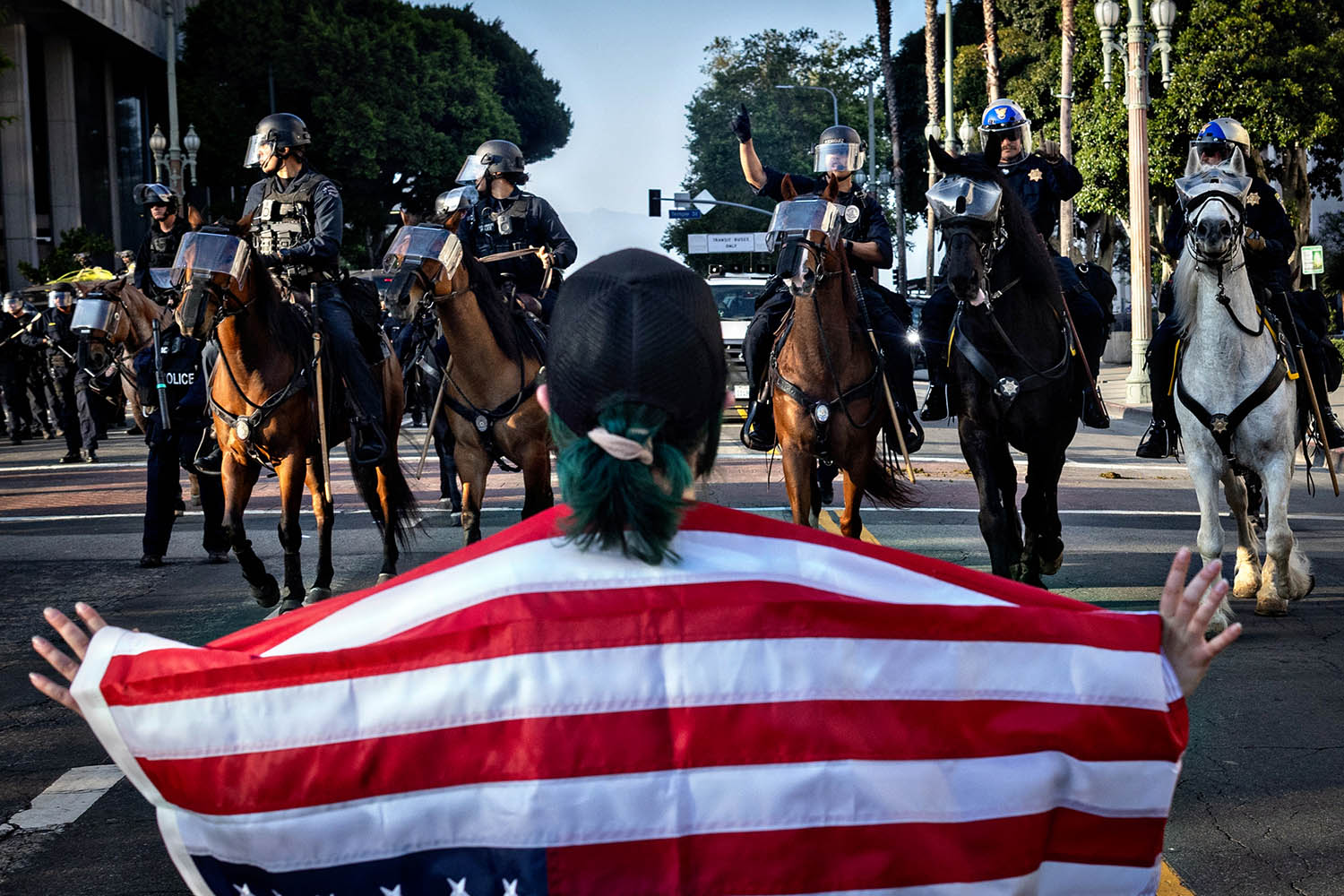
A demonstrator faces mounted police near Los Angeles city hall
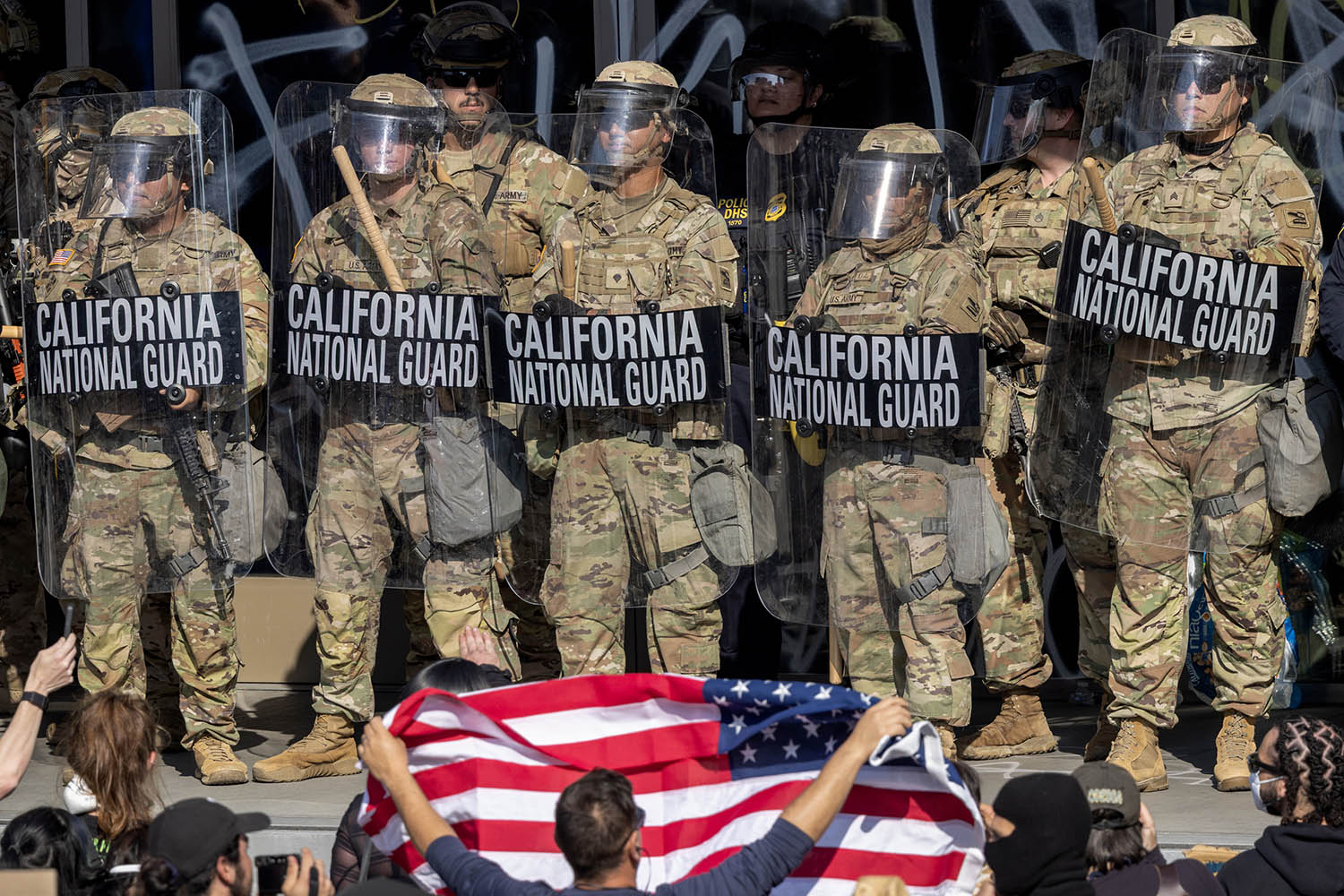
Protesters confront national guard troops and police outside a federal building in Los Angeles
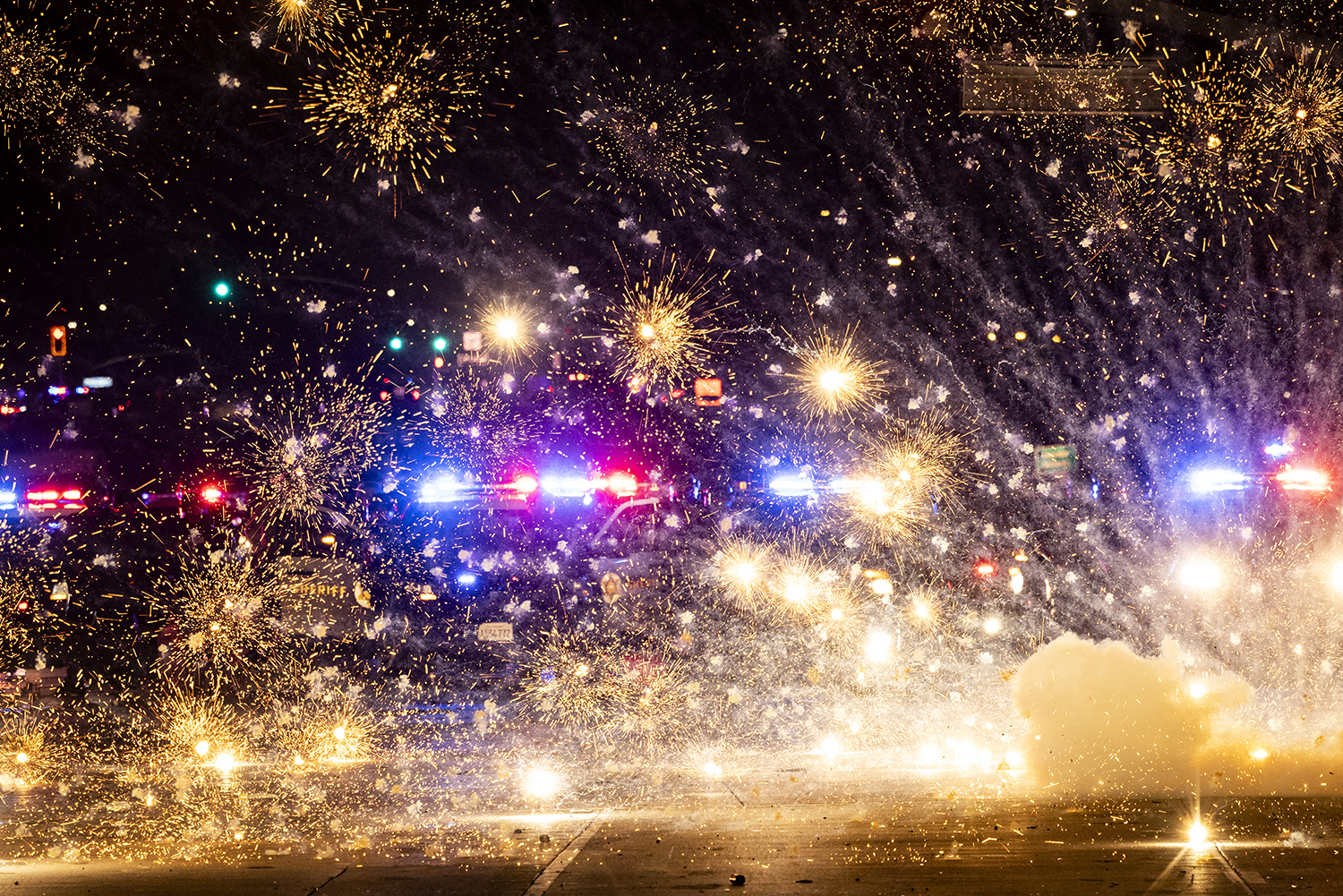
Fireworks are set off in Compton last Sunday
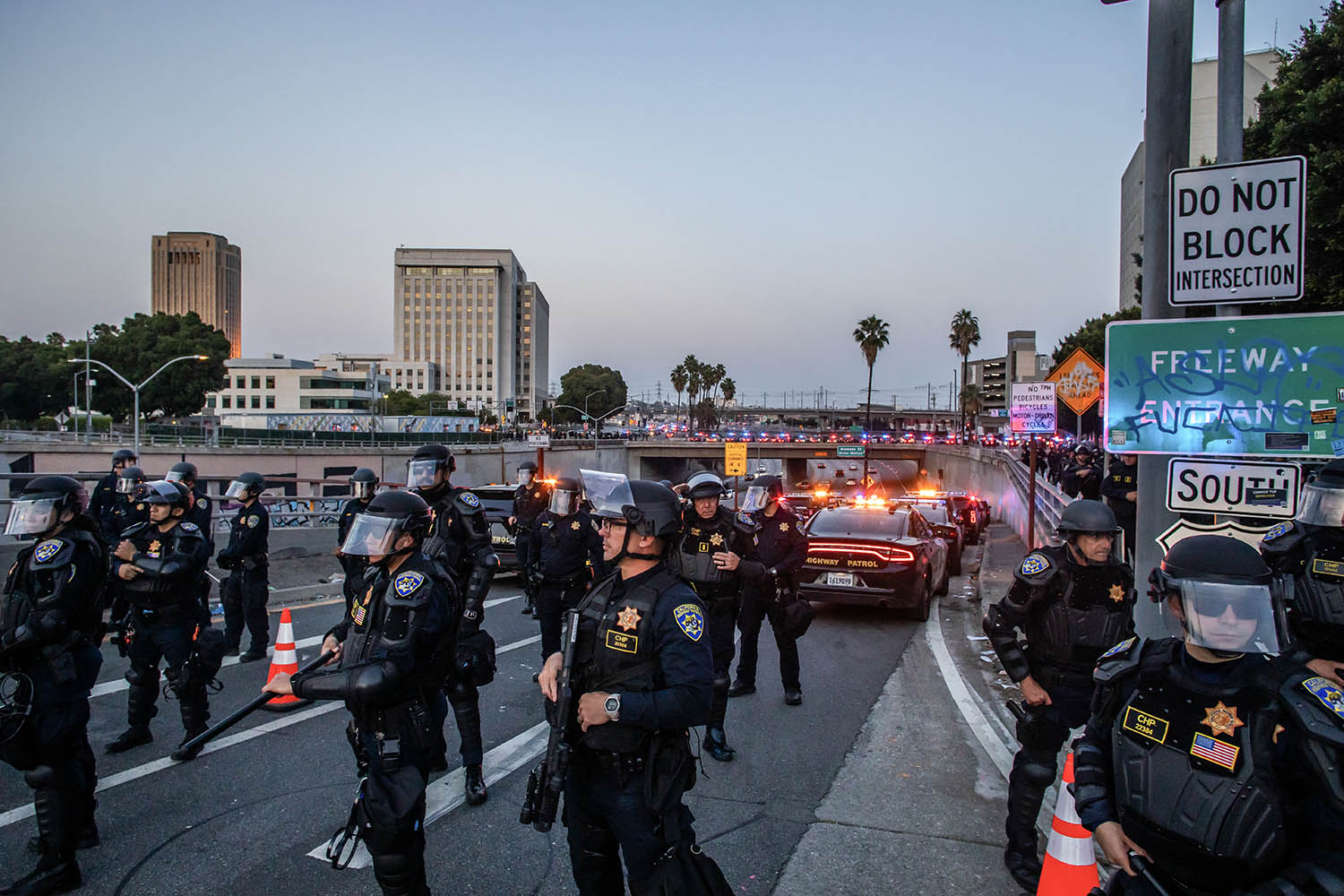
Police shut roads after the curfew was declared last Tuesday
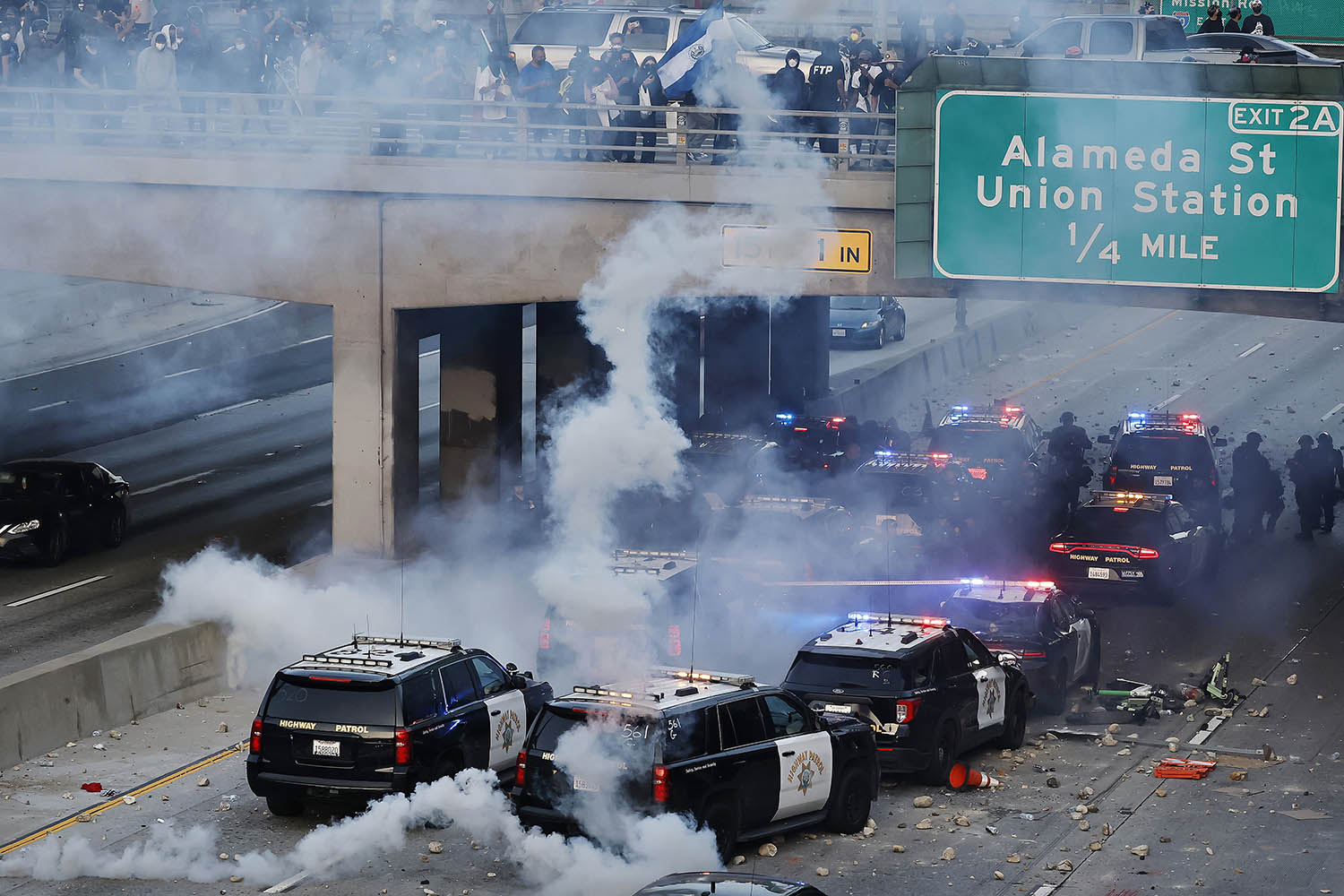
A flash bomb explodes on the motorway near the detention centre
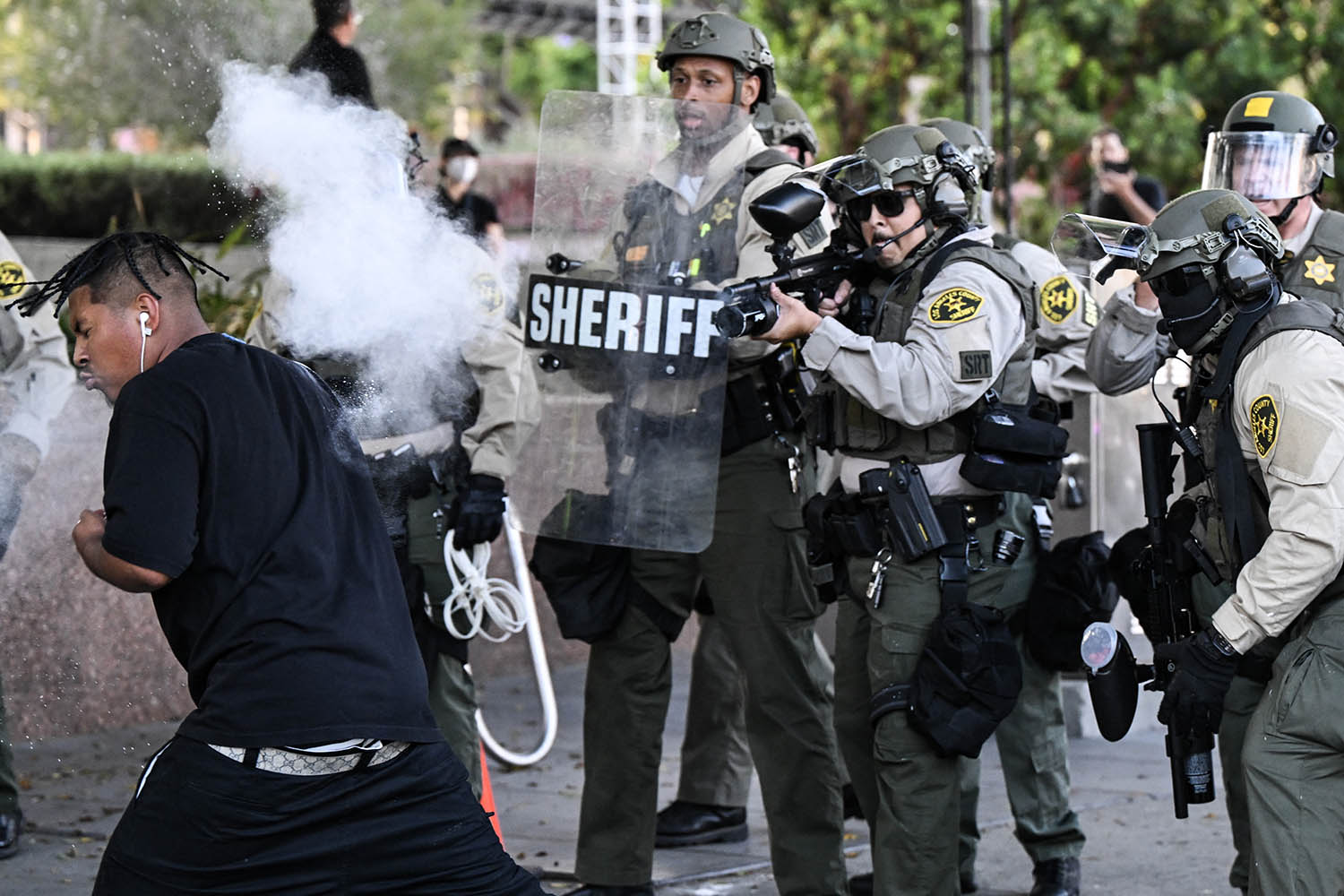
Sheriff’s department deputies fire a nonlethal round at a protester last Wednesday
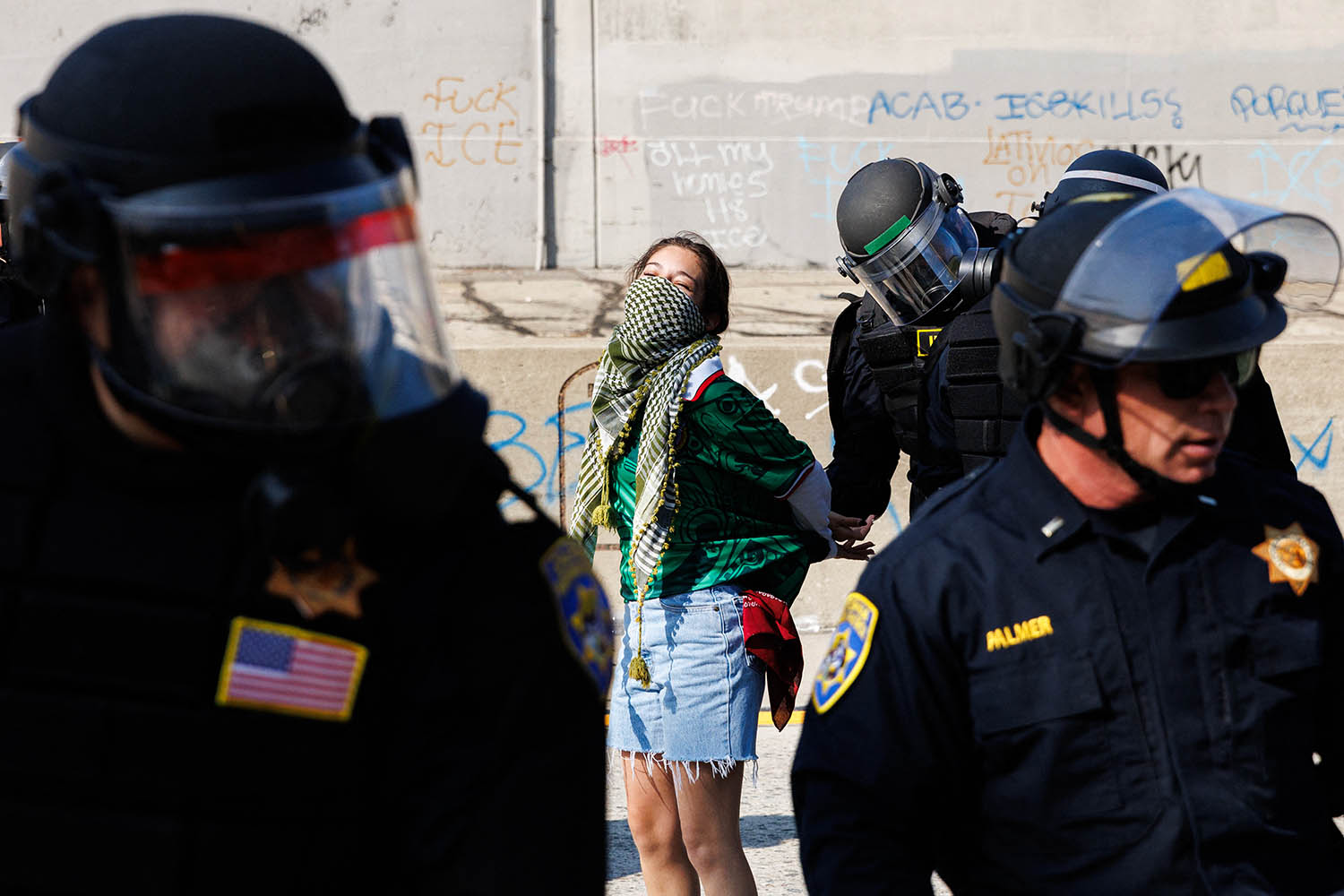
A protester is arrested by highway patrol officers last Sunday
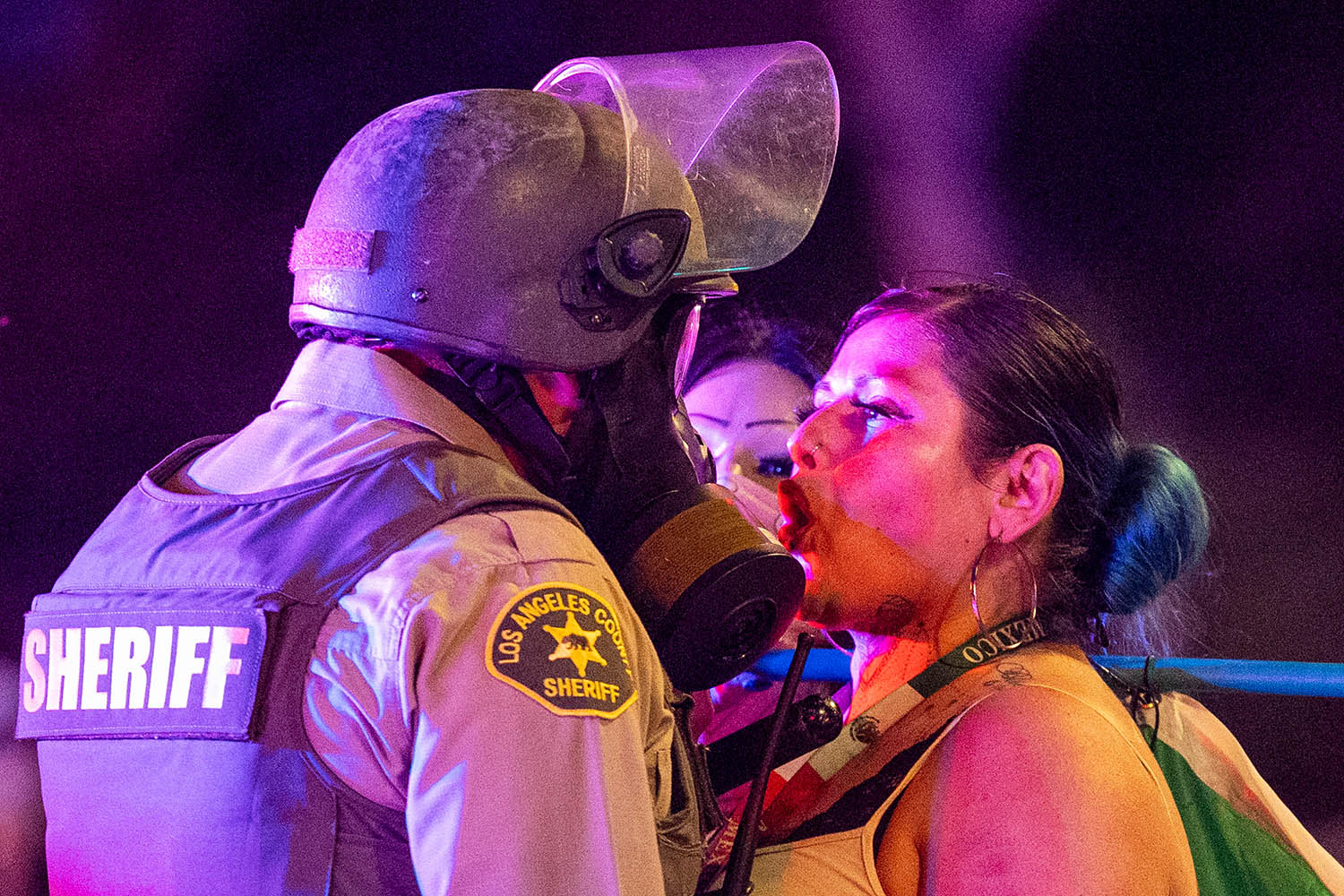
A protester faces off with a sheriff deputy last Sunday
Photographs by David McNew/Getty, Spencer Platt/Getty Images, Apu Gomes/AFP, Jason Armond / Los Angeles Times, Jae C. Hong/AP, Etienne Laurent/AFP, Mario Tama/Getty Images, Ronaldo Schemidt /AFP, Blake Fagan/AFP, Ringo Chiu/AFP
